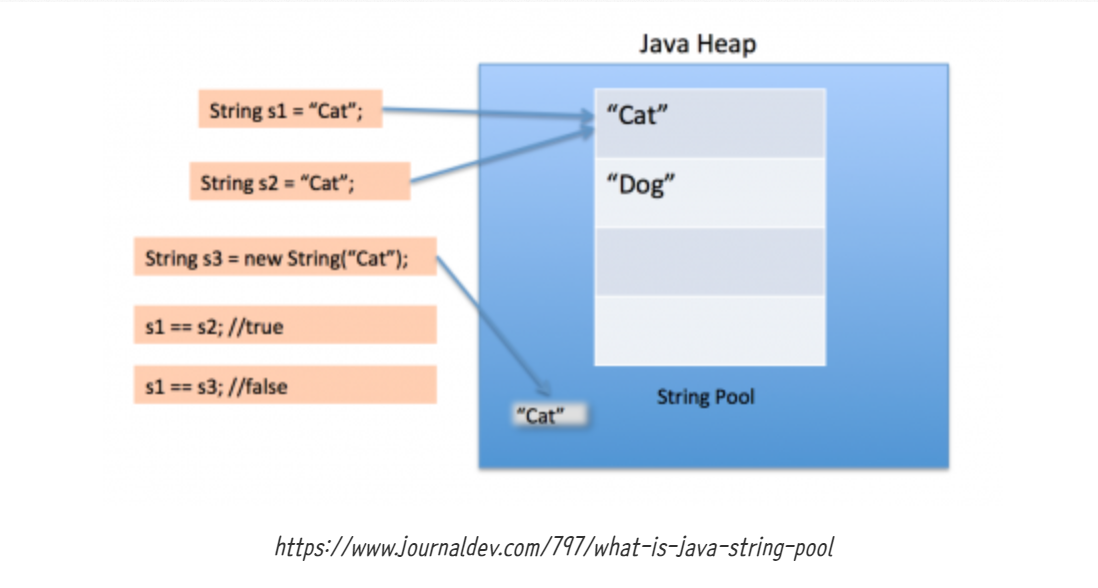자바에서 String 문자열 생성 방식
1. new String()
2. String literal("")
두 개 차이 : 저장공간(메모리)의 차이
new 연산자를 사용하여 String을 생성할 경우
Heap 메모리 영역에 저장됨
리터럴(literal) 을 사용하여 String을 생성할 경우
Heap 안에 있는 String constant pool 영역에 생성

String s1 = "Cat";
String s2 = "Cat";
String s3 = new String("Cat");- literal로 생성한 s1, s2는 동일한 객체를 바라보고, new String()으로 생성한 s1은 다른 메모리 주소의 객체를 바라본다
- String literal로 생성한 객체가 이미 존재한다면, 해당 객체는 이미 생성되어 있는 String constant pool 영역을 참조한다
- new 연사자로 생성한 String 객체는 같은 값이 String pool에 존재하더라도, Heap영역에 별도로 객체를 생성한다.
System.out.println(s1.equals(s3)); //true
System.out.println(s1 == s2); //true
System.out.println(s1 == s3); //false
- equals는 값이 동일한지 비교하고, ==는 메모리상 동일한 객체인지 비교한다
- s1과 s3는 값은 동일하지만 메모리상 저장된 곳이 다르기 때문에 false가 나온다
- s1과 s2는 모두 literal을 사용한 동일한 문자열이기 때문에 동일한 주소값을 바라보므로 true가 나온다
'JAVA > 공부' 카테고리의 다른 글
| 정적 바인딩 VS 동적 바인딩 (0) | 2025.01.15 |
|---|---|
| [프로그래머] 공배수 (0) | 2024.11.06 |
| [JAVA] json 파싱하기 :: JSONArray, JSONObject 넘어오는 형태에 따라 값 추출하는 방법, 예시 (0) | 2024.08.26 |
| [JAVA] String, StringBuffer, StringBuilder 차이 (0) | 2024.01.31 |
| [JAVA] static 변수와 static 메소드 (0) | 2024.01.31 |